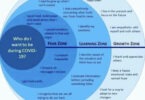
Picture from CBS.com
For those of us hit by Sandy, it still seems unbelievable. Trees lying on the ground, everywhere, after being pulled up by their roots. Seeing the gaps in the soil where the trees once stood and all the phone lines on the street, homes and cars crushed, it is almost surreal. No street lights, power, heat, gas, refrigerated foods (for me this is devastating as I eat mostly vegetables and meat). It is chaotic to say the least.
I am lucky, all my friends, family and neighbors are all safe but so far Hurricane Sandy has claimed about 170 lives and has created around $50 billion in damages in the U.S., http://www.usatoday.com/story/tech/columnist/vergano/2012/11/03/bloomberg-climate-sandy-sea/1677463/. This is just in the U.S., other countries affected by the devastation of Sandy, like Haiti which has suffered devastating earthquakes and hurricanes in recent years, are also in a recovery period. Read about FiFi, who gave birth in the middle of the storm, “Tell people we need nappies, cooking utensils, protein.” http://www.guardian.co.uk/world/2012/nov/02/aftermath-hurricane-sandy-haiti-disaster. Time will go on, we will survive this and move forward.
However, thinking about the future is a bit worrisome as I never want to experience anything like this again. I fear for the lives of my children.
Are hurricanes created by mother nature? Or, are they “man made” disasters just waiting to happen again as a result of global warming? Do we have the ability to avoid these catastrophes in the future?
There is a report done by the US Global Research Program 2009, citing “global warming is unequivocal and primarily human-induced.” The potential effects of climate change, to use a poor play on words, are chilling. ”
If there is even a remote chance we can control this we should. If Sandy is a sign of what’s to come. Even though this storm created so much disaster, it may not be the worst of it and if the quantity of storms increase our lives will change as we know it, for sure.
The Earth is in crisis every day as it bears the burden of pollution, deforestation and our “carbon footprints”. Polar bears are dying. Water levels are rising, the eco-system in Alaska is in turmoil, http://www.fs.usda.gov/Internet/FSE_DOCUMENTS/fsbdev2_038171.pdf.
No matter if you believe in global warming or not, “there is little disagreement that sea levels worldwide average about a foot higher than a century ago due to seawater expanding in a warming ocean in the face of climate change. That extra increase is due to ice sheet melting in Greenland and elsewhere, which was not (originally) accounted for in the 2007 Intergovernmental Panel on Climate Change report.” See above link from USA Today.
Dr. Knabb of the National Hurricane Center was quoted as saying “This is not just going to be a coastal event.” People from Virginia northward should be prepared for a “long-duration event.” He was right, this is a first of its kind for the North and it has taken a week just to get back on our feet. Although we are making progress, we are not walking yet.
Whether you believe in global warming or not it does not hurt to take preventive measures just in case.
There is a price we will pay for the luxuries we use:
air conditioning/heating, electric, transportation, fuel and air pollution, deforestation for homes, paper goods, etc…
We need to take responsibility and care for our planet. What can we do?
http://globalwarming-facts.info/50-tips.html
http://planetsave.com/2008/11/28/five-ways-to-prevent-global-warming-that-big-media-wont-tell-you/
http://ecowatch.org/2012/manmade-warming/
Get active or donate to Greenpeace, http://www.greenpeace.org/usa/en/. Click on this link, https://secure3.convio.net/gpeace/site/Advocacy?cmd=display&page=UserAction&id=1220&s_src=topnav&__utma=1.322668886.1352029231.1352029231.1352029231.1&__utmb=1.1.10.1352029231&__utmc=1&__utmx=-&__utmz=1.1352029231.1.1.utmcsr=google|utmccn=(organic)|utmcmd=organic|utmctr=(not%20provided)&__utmv=-&__utmk=246906116, to support the request to “David Novak, CEO of KFC, to create a global deforestation policy that ensures that eating a Yum! meal doesn’t drive the destruction of the world’s remaining rainforests?”
Educate your children, http://globalwarmingkids.net/groups/index.html.
Calculate your carbon footprint:
http://www.nature.org/greenliving/carboncalculator/index.htm, http://www.cooltheworld.com/kidscarboncalculator.php
What are your thoughts? Please share your views.







“If there is even a remote chance we can control this we should….it does not hurt to take preventive measures just in case.”
That may seem to make sense immediately after a shocker like Sandy when there is so much pain about. In the clear light of day, however, wasting scarce resources never makes sense. Only if we have a realistic chance of controlling it and can do so without creating more gross hardship than we prevent does it makes sense to make the investment. Otherwise, it makes more sense to put the resources into planning for and mitigating the impact of the inevitable. Squandering our resources and our stamina in an ultimately fruitless attempt at prevention is foolish. Our efforts can be better focused. The sensible thing is to be realistic and cost effective as we face this challenge.
I agree and like it, face the challenge cost effectively. If we do not and this continues over time (although not likely in our generation) it seems many lives more lives are in jeopardy. Possibly, I hate to be fatalistic, but the end of the world. People in N.Y. are on lines for gas that wind around blocks and go on for miles. People are cutting lines. They are cold. It is not a good place to be. Yet, we just got power back and are returning home!!!!! 🙂